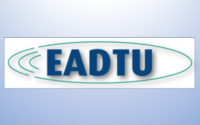
The Evolution of Designing E-Service-Learning Projects: A Look at the Development of Instructional Designers
This design case will discuss how design strategies evolved through the development and implementation of two e-service-learning project cohorts. The article provides a detailed account for how Designers for Learning launched its first e-service-learning instructional design project to address adult basic education needs. Information and design feedback gathered at the end of project informed design […]















